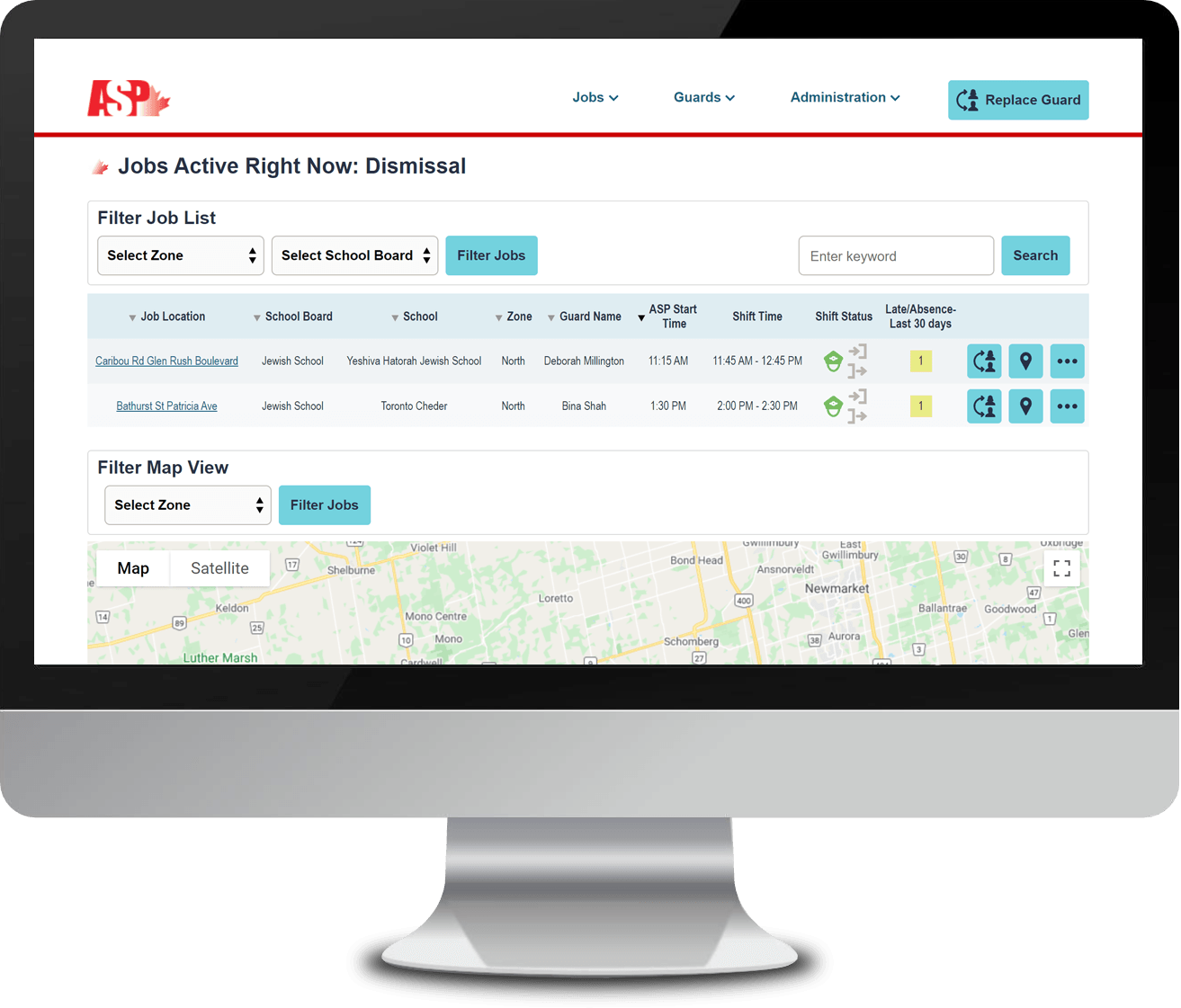How to Drive Digital Transformation in Your B2B Business
Digital transformation is not just a buzzword. It's a necessity for B2B businesses to stay competitive in today's digital age. But how do you drive digital transformation in your B2B business? This blog post will explore strategies and tips to help you successfully navigate the complex digital transformation process.
Gone are the days when digital transformation was a choice. For B2B companies looking to excel, it's become a must-do. It's about integrating technology to streamline your processes and enhance your services. This article will walk you through essential strategies to help your business survive and thrive.
What is digital transformation?

Digital transformation refers to integrating digital technologies into all aspects of a business, fundamentally changing how it operates and delivers value to its customers. It involves leveraging technology to improve efficiency, productivity, customer experience, and overall business performance.
Digital transformation involves reimagining the business and adopting digital technologies to enhance efficiency and provide greater customer value. It is an ongoing process that requires constant attention to keep pace with the ever-changing digital landscape.
Why is digital transformation necessary for B2B field service companies?
Digital transformation can significantly impact B2B field service companies. Here are some key reasons why digital transformation is essential in this industry:
1. Increased productivity is one of the main benefits of utilizing digital tools and technologies. For example, automating the scheduling and dispatching of field service technicians will reduce errors, improve response times, and boost productivity.
For our client ASP Security we developed a web platform and app to manage crossing guards in the Toronto school district which dramatically improved efficiency and reduced operational cost.
2. Enhanced customer experience: Digital transformation helps B2B field service companies to provide better customer service. By offering real-time updates and self-service portals you can empower customers to request service, track progress, and provide feedback quickly.
3. Cost savings: Digital transformation can help B2B field service companies optimize operations and reduce costs. By optimizing technician routes and resource allocation, for example, you can reduce lower fuel and maintenance costs and reduce travel times. Another example is the integration of your web presence with your internal business systems, which results in substantial improvements in efficiency and reduction of cost.
For our client Das Parts we developed a warehouse management system and eCommerce website and integrated it with their bookkeeping system. This dramatically improved efficiency of operations.
4. Better decision-making: Digital transformation enables B2B field service companies to collect and analyze data from various sources, such as customer feedback, equipment sensors, and historical service records. This data can inform decisions on predictive maintenance and improving operational efficiency.
Digital transformation is important for B2B field service companies to remain competitive, enhance operational efficiency, and offer a superior customer experience. Adopting digital tools and technologies can improve productivity, save cost and help companies to adapt and grow in a rapidly changing digital environment.
Digital transformation changes how companies create value
Digital transformation is more than just adopting new technologies or implementing digital tools. It is about fundamentally changing how companies create value and deliver it to their customers.
Another essential aspect of digital transformation is process optimization. Businesses can improve efficiency and reduce costs by automating manual and repetitive tasks, freeing up time to focus on more strategic initiatives and innovation.
Furthermore, digital transformation enables businesses to expand their reach and tap into new markets. Businesses can reach a global audience and increase their customer base by leveraging digital channels such as social media, e-commerce platforms, and online marketplaces.
The essential components of digital transformation
Digital transformation is a comprehensive process that involves various components. Here are some essential components to consider when driving digital transformation in your B2B business:
Technology adoption: Embracing technology is crucial for digital transformation. Assess your current digital technology infrastructure and identify areas where new tools and systems can improve efficiency, productivity, and customer experience. This may include adopting cloud computing, implementing customer relationship management (CRM) software, or utilizing data analytics tools.
Business Process Optimization: By automating and refining your processes, you can cut down on tedious tasks and focus on what truly matters. This can involve implementing digital workflows, eliminating paper-based processes, and using software solutions to automate repetitive tasks.
Customer-centric approach: Digital transformation should revolve around delivering exceptional customer experiences. Understand your customers' needs and preferences, and tailor your products, services, and communication strategies accordingly. Use technology to personalize customer interactions, provide self-service options, and offer seamless omnichannel experiences.
Data-driven decision-making: Leveraging data and analytics is essential for making informed decisions in the digital age. Collect and analyze data from various sources to gain insights into customer behaviour, market trends, and business performance. Use these insights to drive strategic decision-making and improve business outcomes.
Organizational culture and talent development: Digital transformation requires a shift in mindset and a culture of innovation and agility. Encourage a culture that embraces change, encourages experimentation, and values continuous learning. Invest in training and upskilling your workforce to ensure they have digital skills and knowledge to drive transformation.
Remember, digital transformation is an ongoing process, not a one-time event. Continuously monitor and adapt your digital transformation initiative to stay ahead of changing market dynamics and customer expectations. Embrace a mindset of continuous improvement and innovation to drive long-term success in the digital era.
How do I start with a digital business transformation for my company?
Digital transformation can seem daunting, especially for traditional B2B businesses. However, with the right approach and strategy, you can successfully navigate the process. Here are some steps to get started:
1. Define your vision and goals: Before embarking on a digital transformation journey, it's crucial to have a clear vision of what you want to achieve and set specific goals. It will help guide your strategy and ensure everyone in your organization is aligned.
2. Assess your current state: Closely examine your existing systems, processes, and technologies. Identify areas that need improvement and determine how digital solutions can address these challenges. This assessment will serve as a baseline for measuring progress throughout the transformation process.
3. Develop a roadmap: Create a detailed roadmap that outlines the steps and milestones needed to achieve your digital transformation goals. Break down the transformation into manageable phases, prioritizing initiatives based on their impact and feasibility.
4. Build a digital culture: Digital transformation is not just about implementing new technologies; it's also about fostering a culture of innovation and collaboration. Encourage employees to embrace change, provide training and support, and create an environment that values experimentation and learning.
5. Invest in the right technologies: Identify the technologies and tools for digital transformation. This may include cloud computing, data analytics, artificial intelligence, or automation solutions. Evaluate different vendors and choose the ones that align with your goals and budget.
6. Implement and integrate: Once you've selected the technologies, it's time to implement them. Start with small pilot projects to test the waters before scaling up. Ensure proper integration with existing systems and processes to maximize efficiency and avoid disruptions.
7. Monitor and measure results: Continuously monitor the progress of your digital transformation initiatives and measure their impact on key performance indicators (KPIs). Use data and analytics to gain insights and make data-driven decisions. Adjust your strategy as needed based on the results.
8. Foster innovation and continuous improvement: Digital transformation is an ongoing process, not a one-time project. Encourage innovation and continuous improvement by fostering a culture of experimentation and learning. Stay updated on emerging technologies and industry trends to stay ahead of the competition.
By following these steps and staying committed to the journey, you can successfully drive digital transformation in your B2B business and stay competitive in the digital age.
Challenges and Solutions
Driving digital transformation in a B2B business comes with its fair share of challenges. Here are some common obstacles you may encounter and strategies to overcome them:
1. Resistance to Change: One of the biggest challenges in implementing digital transformation is resistance from employees and stakeholders. Many people are comfortable with traditional processes and may hesitate to embrace new technologies.
Solution: To address resistance, it's crucial to communicate the benefits and value of digital transformation. Show how it can improve efficiency, productivity, and customer experience. Provide training and support to ensure employees have the necessary skills to adapt to digital tools and processes.
2. Legacy Systems and Infrastructure: B2B businesses often have outdated systems and infrastructure that may not be compatible with new digital solutions. Integrating these legacy systems with modern technologies can be complex and time-consuming.
Solution: Conduct a thorough assessment of your existing systems and identify areas that need upgrading or replacing. Develop a roadmap for gradually integrating new technologies while minimizing disruption to daily operations. Consider working with experienced IT consultants or vendors to ensure a smooth transition.
3. Data Security and Privacy: Data security and privacy become paramount concerns with the increasing use of digital tools. B2B businesses handle sensitive customer and company information, and any data breaches can have severe consequences.
Solution: Implement robust cybersecurity measures to protect your data and systems. This includes encryption, strong access controls, regular security audits, and employee training on best practices for data protection. Comply with relevant data protection regulations, such as GDPR, to maintain customer trust and avoid legal penalties.
4. Lack of Digital Skills: Digital transformation requires a workforce with the necessary skills to leverage digital technology. However, many B2B businesses lack data analytics, artificial intelligence, or digital marketing expertise.
Solution: Invest in training and upskilling programs to build a digitally competent workforce. Offer opportunities for employees to learn new skills through workshops, online courses, or certifications. Consider hiring external experts or partnering with digital agencies to fill skill gaps and accelerate the transformation process.
5. Change Management: Successfully implementing digital transformation requires effective change management practices. Employees may resist or struggle to adapt to the new digital initiatives without proper planning and communication.
Solution: Develop a comprehensive change management strategy with clear goals, milestones, and timelines. Communicate the purpose and benefits of digital transformation to employees at all levels. Involve them in decision-making and provide ongoing support and feedback channels to address concerns and make necessary adjustments.
Driving digital transformation in a B2B business is a complex and ongoing process. By recognizing and addressing these challenges head-on, you can pave the way for a successful digital transformation journey and position your business for long-term growth and success in the digital age.
How to get your team involved in the process
Digital transformation is not a one-person job; it requires the involvement and commitment of your entire team. Here are some strategies to get your team on board and actively engaged in the digital transformation process:
1. Communicate the vision: Create a digital transformation strategy and communicate the benefits of digital transformation to your team. Help them understand how it can improve their work and customer experience, and help grow the business. Paint a compelling picture of the future and inspire them to be a part of it.
2. Provide training and resources: Equip your team with the necessary skills and knowledge to embrace digital technologies and tools. Offer training programs, workshops, and resources to help them build their digital capabilities. This will empower them to contribute effectively to the digital transformation journey.
3. Foster a culture of innovation: Create an environment that encourages innovation and experimentation. Encourage your team to think outside the box, challenge the status quo, and develop creative solutions to business challenges. Recognize and reward innovative ideas and initiatives to motivate your team members.
4. Collaborate across departments: Break down silos and encourage collaboration between different departments and teams. Digital transformation often requires cross-functional efforts, impacting various aspects of the business. Foster a culture of collaboration, where teams work together towards common goals and share knowledge and resources.
5. Lead by example: As a leader, it's crucial to walk the talk and set an example for your team. Embrace digital technologies yourself and showcase how they can be integrated into daily work routines. Demonstrate your commitment to digital transformation by actively participating in relevant projects and initiatives.
6. Seek feedback and involve your team in decision-making. This will make them feel valued and engaged, and their perspectives can bring valuable insights. Encourage open and transparent communication, where everyone's opinions are respected and considered.
Getting your team involved and invested in the digital transformation process will drive better results and foster a culture of continuous improvement and innovation. Remember, digital transformation is a journey, and a supportive and engaged team is crucial for success.
Metrics for Success

When driving digital transformation in your B2B business, it's essential to have metrics in place to measure your progress and evaluate the success of your efforts. Here are a few key metrics to consider:
1. Revenue growth: One of the primary goals of digital transformation is to drive revenue growth. Monitor your revenue numbers and track how they change over time as you implement digital strategies. This metric will help you assess the impact of your digital transformation efforts on your bottom line.
2. Cost savings: Digital transformation can lead to cost savings by streamlining processes, reducing manual work, and optimizing resource allocation. Track your cost savings over time to determine the financial impact of your digital initiatives.
3. Customer satisfaction: In the digital age, customer expectations are higher than ever. Measure customer satisfaction through surveys, feedback forms, and online reviews. By focusing on improving customer satisfaction, you can enhance the overall customer experience and build stronger relationships with your clients.
4. Employee engagement: Digital transformation often involves changes in workflows, processes, and technologies, which can impact employee morale and engagement. Regularly measure employee satisfaction and engagement levels to ensure your digital transformation initiatives positively impact your workforce.
5. Digital presence: Assess your online presence and visibility by monitoring metrics such as website traffic, social media engagement, and search engine rankings. A strong digital presence is crucial for attracting new customers and staying ahead of the competition.
By tracking these metrics and regularly evaluating your progress, you can identify areas for improvement and continuously drive digital transformation in your B2B business. Remember, digital transformation is an ongoing process, and adapting and evolving as technology and customer expectations change is essential.
Conclusion
In conclusion, driving digital transformation in your B2B business is essential for staying competitive in today's digital age. You can successfully navigate the digital transformation journey by embracing new technologies, adopting a customer-centric approach, and investing in employee training. Remember, it's about implementing new tools and systems and creating a culture of innovation and continuous improvement. So, start small, set clear goals, and measure your progress. With the right strategy and mindset, you can drive digital transformation and position your B2B business for long-term success.
Are you ready to start your digital transformation journey?
Contact us today for a free consultation.
Do you have any questions on the above, or would you like to share your experience? Just email ideas@mawazo.ca or call +1 (833) 503-0807.
At Mawazo Marketing we work with owners of B2B companies who want to accelerate their business. We help them with a concrete digital growth plan, a website that saves operational cost, and a digital marketing system that generates leads. For qualifying clients we offer a 5x ROI guarantee: if we don't reach the objective, then we pay back the difference. Book a Free Strategy Session to find out more.














